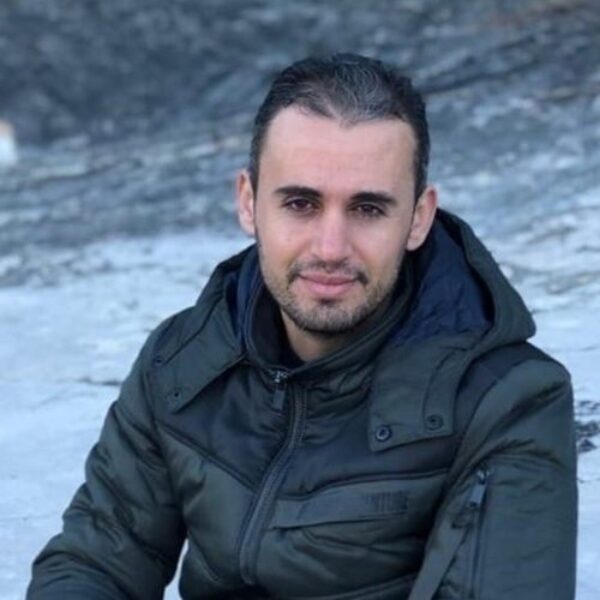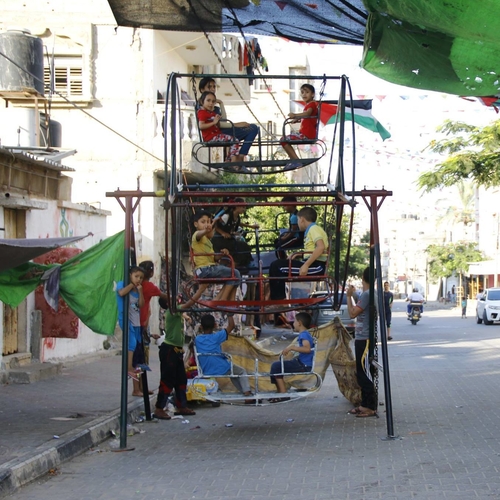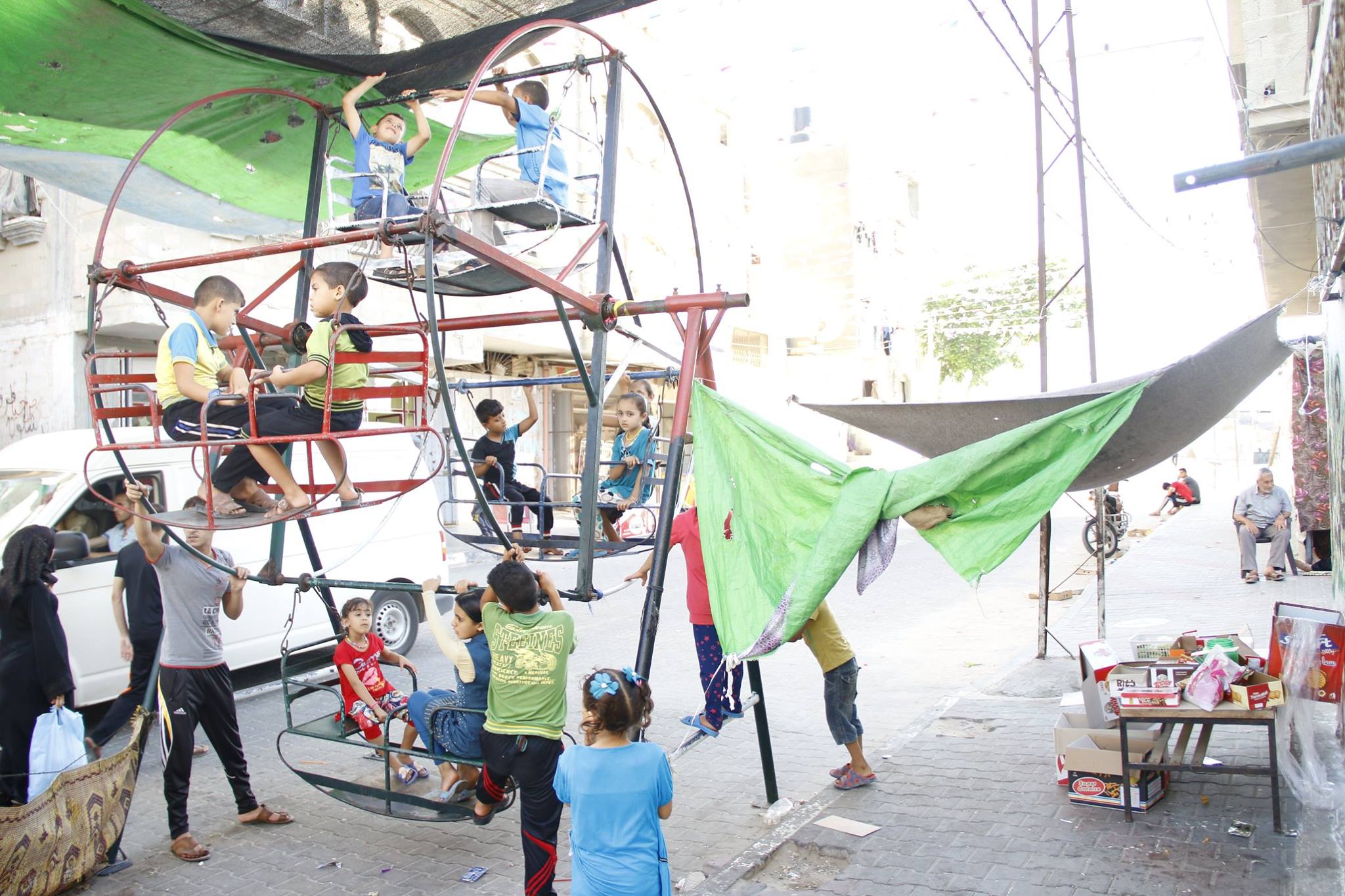
Last Wednesday was Eid. It’s a very special day after Ramadan in which Allah rewards Muslims for their fasting with a time of celebration. The day before, my wife Nadia and I went to the market to buy the usual gifts of candy, cookies and nuts. Nadia isn’t a very good baker, so we buy the date-filled cookies commonly eaten during Eid. Traditionally, older
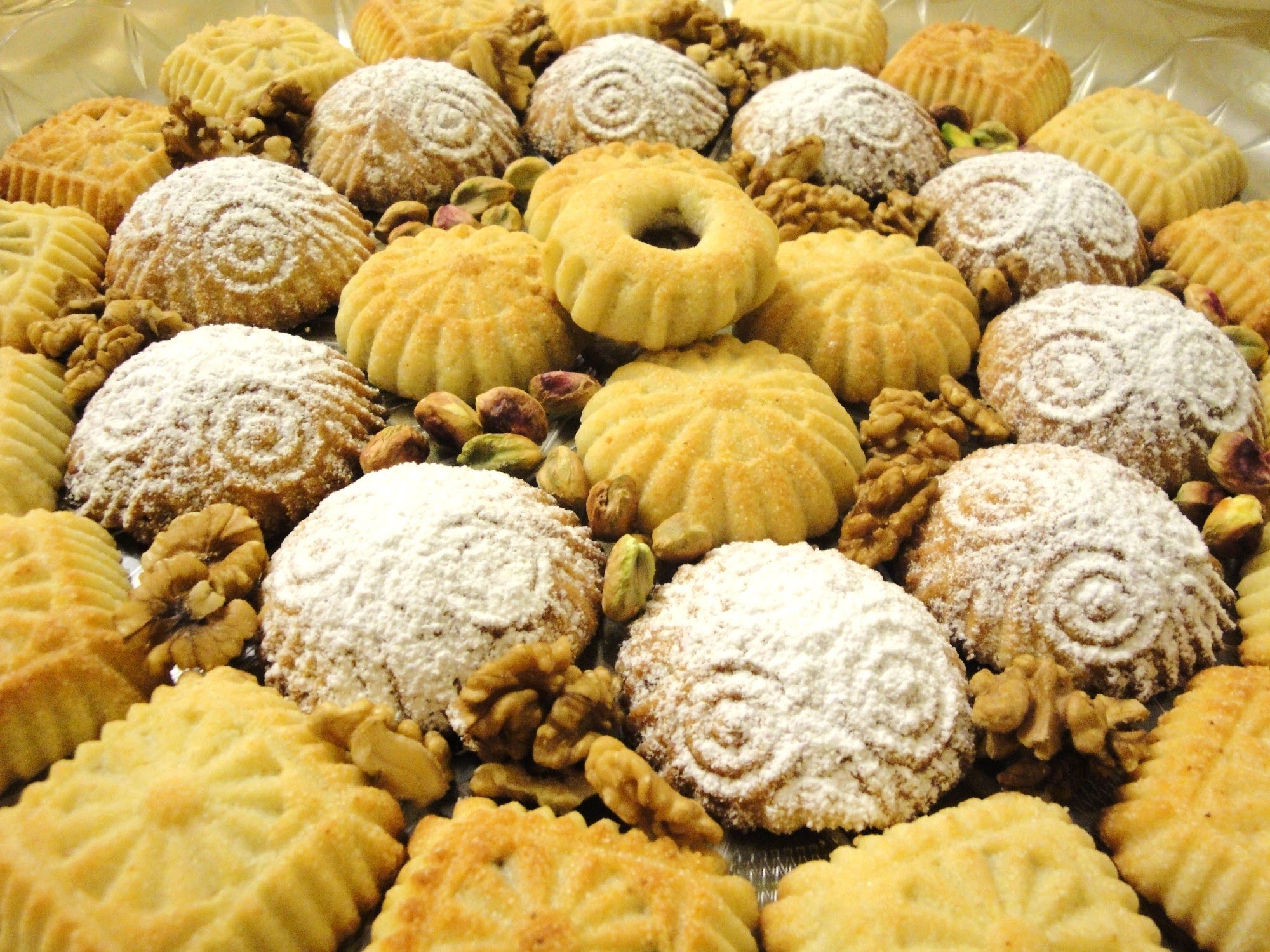
women in Gaza make large quantities of Eid cookies at home; the fragrance is so strong when it wafts through the windows that the neighbors all expect a sample. However, the Israeli blockade makes it difficult for most families to afford the ingredients, so they buy smaller quantities at the market instead.
New clothes also are typically purchased for this special occasion. Even people with the lowest of incomes strive to look their best for Eid. They only are able to because of Zakat—the third pillar of Islam. It is a religious obligation for all Muslims who are able to donate to others who need it more—particularly during Ramadan. (The amount that should be donated each year is defined as 2.5 percent of a person’s total wealth above a minimum amount known as nisab.)
The first day
On the first of the three days of the Eid celebration, Nadia and I were ready—and so was my wallet. It was stuffed with money to give to children and female relatives, as is our custom. This money is called Eidia and it’s a gift, rather than charity or Zakat, which is a religious requirement. (Are you getting the idea of how expensive the holiday can be?!)
At 6:10 a.m., just after sunrise, I went to the mosque for Eid prayer, which was two rakat (standings, when the Quran is read) that morning. After the prayer, the imam delivered a speech. Our imam’s talk was about how to celebrate Eid and make everybody around us happy, especially poorer people and orphans. Everyone in the audience then greeted each other and exchanged best wishes, along with smiles and hugs. When I returned home, Nadia and I went to my parents’ house to wish them a happy Eid, then had a breakfast of herring and salted fish (a traditional meal for the first day of the holiday).
Then the serious visiting and gift-giving began. My younger brother and I started touring my relatives’ houses and giving Eidia, starting with my mother, sister and wife. It was a very long and tiring day, beginning at 8 a.m. and finishing at 9 p.m. At every house, chocolate, nuts, cookies and juice were served to us. At the end of the day, my stomach was full, yet my wallet was empty. I came home broke, wondering about the benefit of giving Eidia and whether it is necessary, especially in this hard time under the blockade.
The answer came next day.
Adults versus kids
I got up late because I was exhausted due to yesterday’s tour, which I’d made mostly on foot. I didn’t feel the normal happiness of Eid, and my neighbor agreed with me. His clothes were normal like mine, not new like we hope to buy. We stood near a stall selling candy and toys, and the salesperson added, “It’s all due to the siege. Without it, we’d have whatever we want and go wherever we wish.”
However, my cousins—Aya, 7; Reem, 4; and Israa, 7—disagreed, of course. Their parents had bought them fancy new clothes.
“My clothes are the most stylish,” Aya flaunted.
“Oh, really? No, mine are the best!” Israa replied.
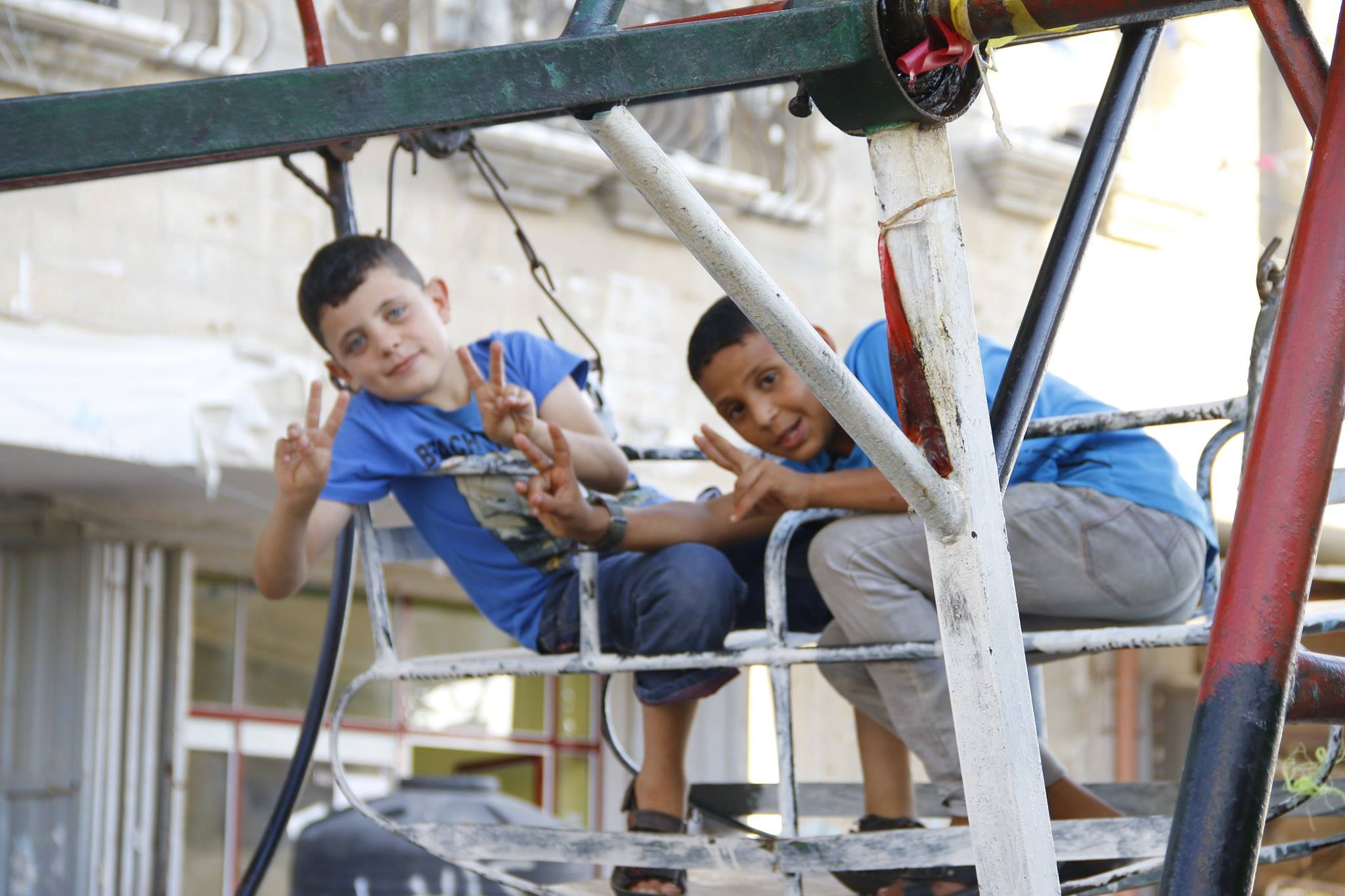
Reem looked into her purse. “Jehad, look!” she said. Her purse was full of nuts. “And I have money too,” she said proudly.
“We all have money,” they yelled. Then they raced to the swings. The swings were in the street next to the sidewalk, very close to the stall. On the swings, there’s no place for boredom or sadness. Laughter, smiles and colorful clothes spin and swing.
Ahmad and Rafif
Everything seemed perfect when suddenly, one of the swinging girls screamed in pain. The culprit was my neighbor Ahmad, a naughty boy. He was shooting at the kids with yellow, plastic balls from his toy gun. His mother shouted at him, but he didn’t listen.
“Why do they (Israel) let such things get into Gaza, but block essential things like cement?!” she lamented.
“To spoil our joy,” I answered, to myself. Then, I remembered the house of my relatives that I visited the day before. They had no floor because they had no money to afford cement. Sand was their ground, even in the kitchen and bathroom.
Rafif—another neighbor, but only 4—stood in front of the swings, looking at the kids. I asked, “Why don’t you swing?”
“I have money!” she answered, on a totally different topic.
“You mean you don’t have money?” I wondered.
“No, no, I have money” she insisted. “And I am going to save it all up.”
“So, what do you want to save it for?” I asked.
“I want to buy an iPad,” she yelled.
Gaza children are like children everywhere.
Extra money means special treats
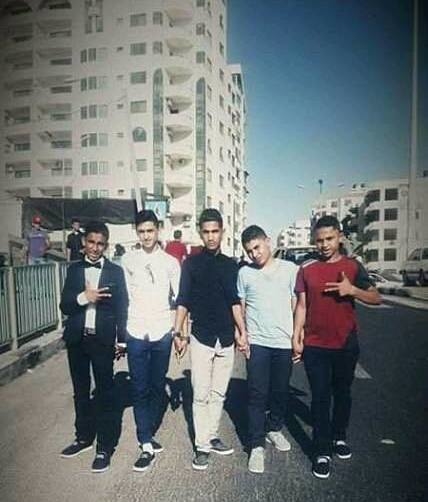
Next to the stall selling candy, a bunch of teenagers had gathered: Yahya, 16; Ahmad, 14; Mohammed, 16; and Fawzi, 15.
“How can we get to Gaza City from our town of Rafah?” Ahmad wondered. A trip to Gaza City from the southern end of the Strip would be a treat.
“We can take a taxi. We have enough money,” Mohammed answered.
”Yeah, right; we can go with our Eidia,” Ahmad responded.
“Let’s go to the Gaza port, take a boat into the sea and take a lot of photos. After that we can hang out in the Unknown Soldier Park. Then let’s have dinner at Al-Sheikh Shawarma Restaurant and ice cream for dessert at Kazim!” Yahya suggested. (Kazim is known across the Strip for having the best Italian-style ice cream.)
“That’s a wonderful plan! Let’s do it tomorrow,” Mohammed agreed. They looked at each other, nodding their heads with faces full of smiles.
When I returned home, I asked Nadia what she wanted to buy with her Eidia. She answered, “A maternity dress.” She’s in her sixth month of pregnancy. “Also, I want to buy a grill for the kitchen, and cushions and a blanket for the bedroom.”
As I learned later when I went with Nadia to the town center, women don’t just buy new clothes with their gift money; they also buy nice touches for the home. Now I realize that despite the expense, the Eidia is worth it because it brings joy. In Gaza, without Eidia there isn’t any Eid.
Mentor: Pam Bailey
Posted July 10, 2016

